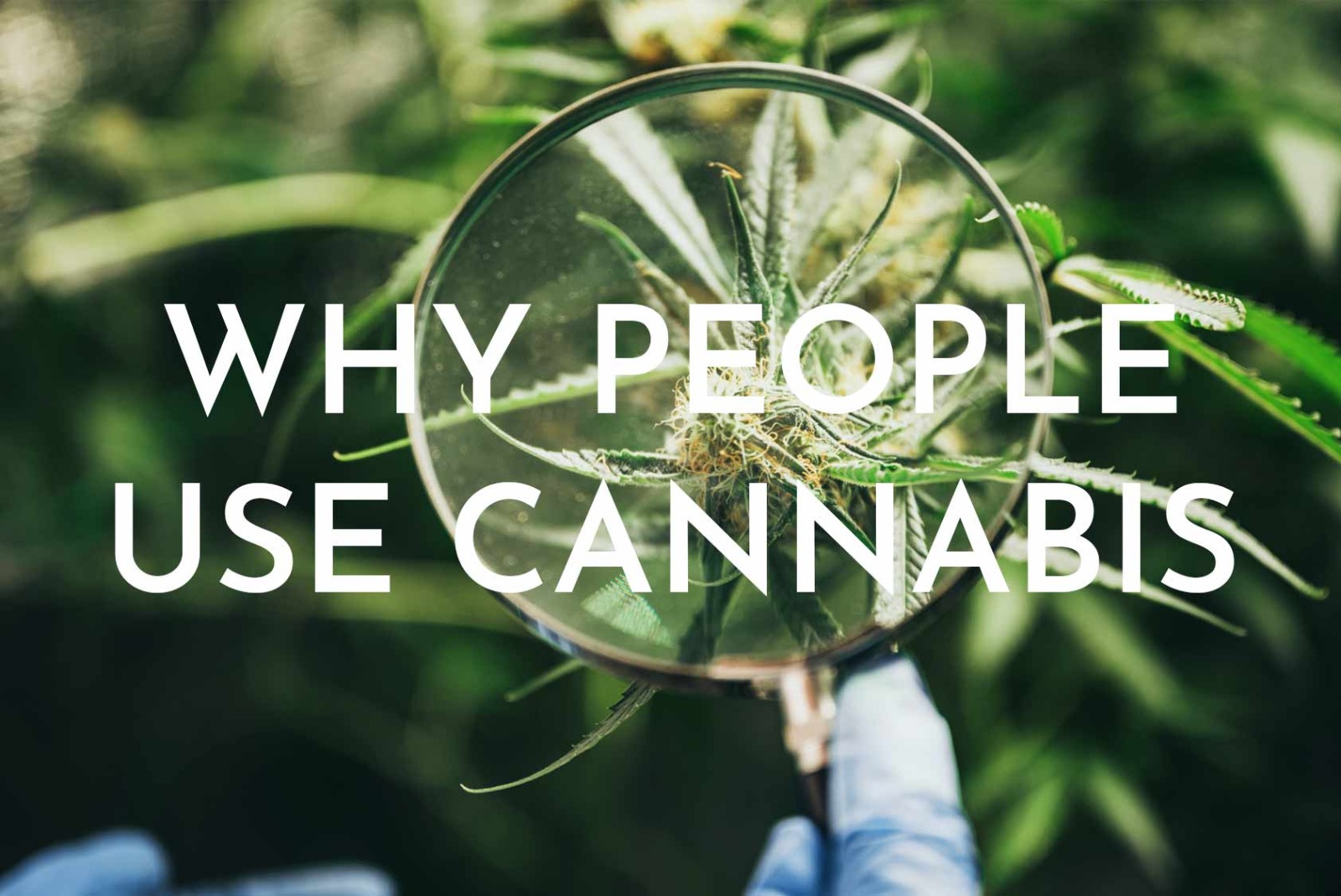Top 4 Reasons for Cannabis Use in Canada

Cannabis has been used medically for many years. Still, since legalization of weed, cannabis use in Canada has increased massively for medicinal purposes. So, what are the most common reasons for Canadians to use cannabis?
1 Cannabis for Insomnia
Psychiatrist Dr. Randhawa at the University of British Columbia’s sleep disorders clinic notes that approximately 30% of people experience symptoms related to a sleep disorder. Generally, this means experiencing difficulty falling asleep or staying asleep. According to the Canadian Community Health Survey, 18% of those who fit the criteria for insomnia were sleeping less than 5 hours per night. A good portion of people were using medication to help them sleep.
Adults need approximately 7 hours of sleep a night, and sleep deprivation can significantly impact a person’s health. Not only does lack of sleep make you feel tired and less alert during the day, but it affects memory, cognitive function, and the ability to manage stress.
It’s clear to see that insomnia has become a major reason for cannabis use in Canada based on this data. Many people are turning to cannabis to help them sleep because it works. Initial studies suggest that the endocannabinoid system plays a vital role in a person’s sleep-wake cycle. Additionally, the CB1 receptor contributes to sleep regulation, and research has shown that activation of this receptor can help induce sleep.
Initial research has shown that CBD can help people fall asleep faster. Still, more research is necessary to fully understand how CBD impacts the sleep cycle. At this time, CBD has been shown to have a better overall impact on sleep because it doesn’t interrupt REM sleep (the most restful sleep stage) the way THC appears to.
You know how you sometimes wake up groggy after smoking right before bed? Researchers believe this is a result of THC decreasing the amount of time you are in REM sleep.
Ready to start sleeping better? Check out some of our products formulated specially for sleep:
SleeBD Capsules – containing CBD and melatonin.
SleeBD Disposable Vape pen – containing CBD and essential oils to make you feel calm and help you sleep.
Check out the rest of our CBD products here.
Sleep hygiene is also something to keep in mind when it comes to getting enough sleep. Here are some ways to practice good sleep hygiene.
2 Cannabis for Pain
Pain is something we all experience, but chronic pain can be debilitating. Approximately 18% of Canadian adults suffer from chronic pain. Pain is considered to be chronic when it lasts 3 months or longer.
Pain management is one of the top cannabis uses in Canada, as it helps reduce inflammation, interrupts pain signalling, interacts with the immune system, and can help manage stiffness.
Numerous studies have found that not only does cannabis reduce symptoms of pain, but it increases the overall quality of life for those who experience chronic pain. This is due in part to the fact that pain impacts many other aspects of a person’s life, such as the ability to sleep, appetite, and mood.
A survey of medical cannabis users with chronic pain (77% of fibromyalgia patients, 63% of patients with arthritis, and 51% of patients suffering from neuropathic pain) reported experiencing “a lot” or “almost complete overall relief.”
Cannabis topicals are a go to for many people who experience pain. Learn more about what cannabis topicals are and how to use them.
3 Cannabis for Stress
Stress has a significant impact on our psychological health and wellness. Chronic stress can lead to burnout or mental illness. At the end of a long day, many are turning to cannabis as a means of managing their stress.
The endocannabinoid system helps maintain homeostasis in the body, which includes the regulation of stress. Preliminary research has shown that cannabis inhibits the hypothalamic-pituitary-adrenal (HPA) axis, which allows the body to return to homeostasis after experiencing stress.
Research supports the use of cannabis for managing the long-term impacts of stress and acute stress response. This means regular use of cannabis can help reduce stress if partnered with a healthy lifestyle. Additionally, cannabis can be used immediately after experiencing stress to help return the body to homeostasis.
Learn more about the many ways to use cannabis for self-care.
4 Cannabis for Nausea/ Loss of Appetite
Nausea and loss of appetite were among the first medical uses of cannabis in Western culture. Synthetic cannabinoids, specifically dronabinol and nabilone, were FDA approved in 1985 for nausea and vomiting associated with chemotherapy treatment and those suffering from weight loss due to AIDS.
Much of the research surrounding the use of cannabis for nausea has been specifically focused on cancer patients. A review of many of these studies found that cannabis tends to be more effective for managing nausea than traditional medication for these patients. Endocannabinoid receptors are present in the digestive system, and research has found that cannabis can influence other parts of the body involved in metabolism.
Can cannabis stimulate appetite?
A 2012 study found THC influenced the appetite hormones ghrelin and leptin. Research also supports that cannabis can affect eating motivation, which can lead to weight gain when experiencing nausea.
It’s important to note that at this point the research on the use of CBD alone for nausea and appetite stimulation is minimal.
Final Thoughts
These are the main cannabis uses in Canada, and it can be a valuable part of a person’s regular health and wellness routine. It can help to manage many ailments and symptoms. If you’re a cannabis user, what are your motivations for using cannabis?
Vaping can be an excellent solution for immediate symptom relief. Want to learn more about vaping but don’t know where to start? Check out our vaping guide.
This article is intended for informational purposes only and is not a substitute for medical advice.


